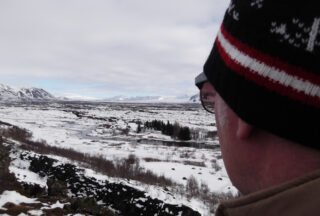 The below post is written by Linda Clarke, Master Hypnotherapist, Personal Coach and NLP Practitioner at The Counselling & Psychotherapy Centre, Swindon.
The below post is written by Linda Clarke, Master Hypnotherapist, Personal Coach and NLP Practitioner at The Counselling & Psychotherapy Centre, Swindon.
Most people know that post-traumatic stress disorder (PTSD) can develop after a very stressful, frightening or distressing event.
Types of events that can lead to PTSD include serious accidents, physical or sexual assault. Many people don’t know, however, that prolonged anxiety is a risk factor in developing PTSD.
If you, or anyone you know, is caring for a loved one, then I think you will agree that it is stressful and all-encompassing. Most of the time a carer has no choice about their role and they just get on with it. They ignore whatever physical and emotional symptoms they have because they prioritise the other person’s care. The stress of being a carer arises from many quarters:
- meeting another person’s physical, mental and emotional needs
- witnessing their degeneration
- involvement in their medical decisions
- addressing new complications
- disruption of the carer’s personal life
- intensive care visits
- pressure of being a decision maker
- uncertainty and severity of the situation
Studies of the chronically ill have found some family members are more prone to develop PTSD than others. Adult children, close relatives, women, bereaved relatives of cancer patients and those who have experienced a long period of caregiving are all at an increased risk of developing PTSD.
It is important to understand the difference between anxiety and PTSD. Anxiety is time-based, in that the symptoms cease after the event. PTSD symptoms last long after the event.
All psychological problems can be seen to involve inappropriate pattern matching.
For example, if you go through a life-threatening experience, any details of the incident can produce a strong emotional reaction. Someone mugged by an assailant dressed in black may in future find that setting eyes on anyone dressed in black prompts a surge of fear.
The black clothes have become a metaphorical ‘stand in’ for the experience of being assaulted.
Some other symptoms of PTSD are:
- reliving experiences through flashbacks, dreams or nightmares (sights and sounds of hospitals)
- not being able to feel emotions
- dissociation. This could include disconnecting from yourself or other people
- negative alternations in mood
- emotional dysregulation. This means it is difficult to control your emotions
- problems relating to others
- problems in relationships
- negative self-perception such as feeling worthless or defeated
- hyperarousal such as feeling on constant alert. Or being overly sensory to stimulus such as smell and noise, and avoidance. This could mean that you try to distract yourself from thinking about the trauma. Or you avoid situations/are triggered into fears that remind you of your trauma (visiting hospitals, doctors’ rooms where diagnosis of an illness was received, the area where the care home or hospital is situated. Even the sound of the phone ringing can remind you of feelings of receiving bad news)
Carers need support to reduce anxiety. Family members and friends should be on high alert to notice changes in the caregiver.
The carer needs to be self-aware, take care of themselves so that they can cope and be more resilient and have some ‘time out’ to do things that they enjoy. Over and above our basic needs for food and shelter, humans have a whole set of needs that, if met, keep us mentally and emotionally well. Read Linda Clarke’ article on primal needs and how you can meet them.
You may not have control over the stressors of being a carer, but you do have control over how you process and manage that stress. Some useful tips are:
- physical activity – daily walk, gardening, dancing, housework, washing car, formal exercise. If you are prone to rumination and worry, physical activity will help you to get ‘out of your head’. It gives your mind a break and releases endorphins, your feel-good hormones. Even if you are restricted due to Covid and cannot get out of the house, all the above activities can be done at home. Try dancing to your favourite music – it will give you a significant boost.
- meditation – there are several types of meditation. Muscle relaxation, visualisations, mindfulness and spiritual practices. Don’t be put off if you have difficulty. If one type of meditation doesn’t do it for you try something else. I am a huge advocate of mindfulness – daily practice can reduce stress and depression after just 6 weeks of daily practice. It also helps you longer term to be more cognisant of how you think. Read Linda Clarke’s article about mindfulness for more information. You can also listen to this body scan meditation.
If you are a carer or bereaved, it is important that you keep connections to the wider community and ask for help.
One way one can reach out to the wider community is to join a support group so that you can pool resources. Research has shown that people can cope with just about anything much better if they surround themselves with people who understand what they are going through. When they meet others, it helps to normalise their experiences.
Recognising when you need professional help
You will know this if you feel emotionally hijacked. When you have persistent PTSD symptoms of flashbacks and nightmares, it’s because the memory of the traumatic event has become locked deep into the emotional part of the brain. Whenever the event is recalled (thinking, or triggers) it is processed again, through the emergency, flight fight part of the brain. This means that it can feel as if it is happening all over again.
These effects persist until you are helped to process the memory and turn it into a narrative rather than a live memory, so that when it is recalled in future the amygdala (emotional part of the brain) is no longer involved.
Linda has helped many people overcome PTSD and offers a no-obligation complimentary 30 minute remote session that you can book onto if you would like to explore if her approach may help you.
You can also speak to staff at Carer Support Wiltshire who can suggest organisations and services that may be able to help you. Call us on 0800 181 4118.




